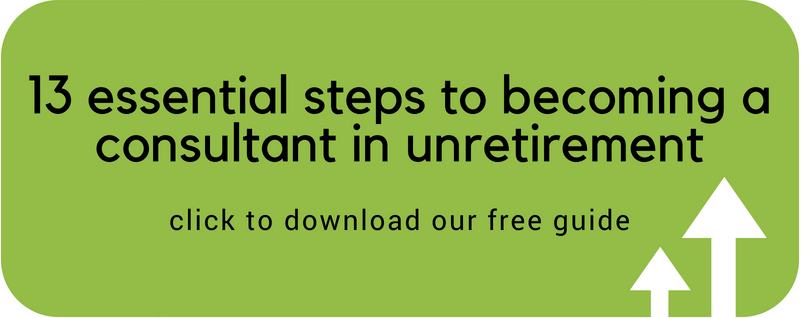Is it time to retire retirement?
4 September 2018 By Victoria Tomlinson

Earlier this month, one of our new members sent me a link to a great Radio 4 programme about alternative retirement planning, or rather, “unretirement”. She thought it was rather amusing – we had just been talking about how she has no plans to retire and wants help to achieve her next ambitions. And then on the radio driving home, a programme looks at all the issues we had been discussing!
The programme, In Business – Retiring Retirement focused on the fact that life expectancy is going up, pensions are declining and increasingly people want more from the time of life that would once have been called ‘retirement’.
In the programme, David Baker spoke to people who have chosen not to live the stereotypical quiet retired life. One of the interviewees founded a bikini company in her 70s and others have vintage goods businesses. What all the interviewees have in common is that they don’t like the sound of the word “retirement” . They all love working and don’t want to give this up. Baker also speaks to Professor Lynda Gratton about how the traditional pattern of education-work-retirement is giving way to a new portfolio career model, with people reskilling much later in life.
Many programmes and articles focus on the “death” of retirement and the negative aspect of this, but this programme acknowledged the fact that some companies are starting to recognise the value in older people’s skills and experience – Barclays has even launched an over-50s apprenticeship scheme in banking.
While many of us at this stage of our careers won’t want to start again as apprentices, it’s heartening that businesses are realising the value of this experience with a Government target of one million more 50-70 year olds in the UK workforce over the next five years.
I particularly resonated with one of the interviewees, Pamela Major. Major – a former diplomat and now a coach and trainer – talked about the idea of “wedges” and the importance of building up a potential career in a wedge while you’re still in secure employment. The idea is that you build up this wedge until you get to the point where that wedge is larger than the wedge of your secure employment. Then you can resign from your secure employment happily.
What was most refreshing and interesting about this programme was that none of the people resonate with the word “retirement” and several of them were starting their own businesses.
Jane Kellock runs Unique Style Platform, a fashion-forecasting company. She says that setting up a business in later life, “felt like absolutely the right time. My children were off my hands, they were at university and I could work 14-hour days if I wanted to.” Kellock also says, “I hate the idea of not working and sitting by the fire with my slippers on.”
Seventy-six-year-old Cherry Harker founded Zwimsuit, a neoprene swimsuit business, after a career running nightclubs and selling cars. She also runs Molly’s Den, an indoor market in Winchester, with her husband. Harker talks about the adrenaline rush of setting up a business and working late into your life – she believes it keeps her brain going and keeps her healthy.
“Most of us are living longer and we’re living longer and more healthily,” says co-author of The 100-Year Life, Lynda Gratton.
“Most of us should be planning on working into our seventies and possibly even our eighties.” She continues, “When you thought you were going to retire at 60, what you really thought is you would have a first stage of full-time education, a second stage of full-time work and a third stage of retirement and you didn’t really have to plan for that. You didn’t have to make any big choices about your life.”
When working life elongates into our seventies or eighties, that three-stage life is going to break down, she says. “How could you possibly only be educated once in your life? Why would you want to retire at 60 when you can live until 100?”



